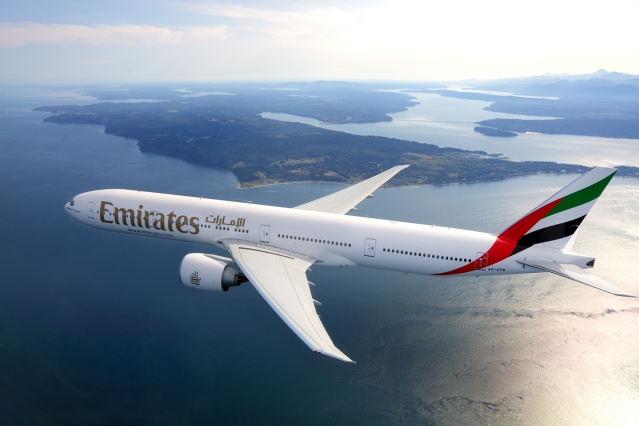Stay updated with the latest - Click here to follow us on Instagram
Flying on Emirates flight? You won’t be able to use power banks onboard from October 1
Under the revised policy of Emirates, one power bank per customer is permitted, provided it is rated below 100 watt-hours.
 An increase in the number of lithium battery-related incidents in the aviation sector has been cited as the reason behind the ban (Photo: Emirates)
An increase in the number of lithium battery-related incidents in the aviation sector has been cited as the reason behind the ban (Photo: Emirates)Dubai-based Emirates has issued new rules, banning the use of power banks on its flights effective from October 1. While passengers will still be permitted to carry one power bank onboard, with specific conditions, they cannot use them inside the aircraft cabin – neither to charge devices from the power bank, nor to be charged themselves using the aircrafts’ power source.
What is behind power bank ban?
According to the airline, the revised policy is part of Emirates’ proactive approach to enhancing in-flight safety and follows a comprehensive internal review in response to growing concerns across the aviation industry.
How power banks became flight risk
An increase in the number of lithium battery-related incidents in the aviation sector has been cited as the primary reason behind the new policy. The widespread use of power banks – which typically rely on lithium-ion or lithium-polymer batteries – has led to an uptick in onboard safety risks, particularly incidents involving thermal runaway.
Thermal runaway is a hazardous condition in which battery cells overheat uncontrollably, potentially resulting in fire, explosion, or toxic gas release. While modern smartphones and advanced devices typically include overcharge protection systems, many power banks – especially basic models – lack such safeguards, increasing the risk of malfunction.
By restricting in-flight use and requiring accessible storage, Emirates aims to minimise potential fire hazards and ensure that, in the rare event of a battery-related incident, cabin crew can respond swiftly and effectively.
Things to keep in mind while carrying power bank
Under the revised policy, one power bank per customer is permitted, provided it is rated below 100 watt-hours. The power bank must have a clearly marked capacity rating and must not be stored in overhead compartments. They must be kept in the seat pocket or in a bag under the seat in front of the passenger.





- 01
- 02
- 03
- 04
- 05


























